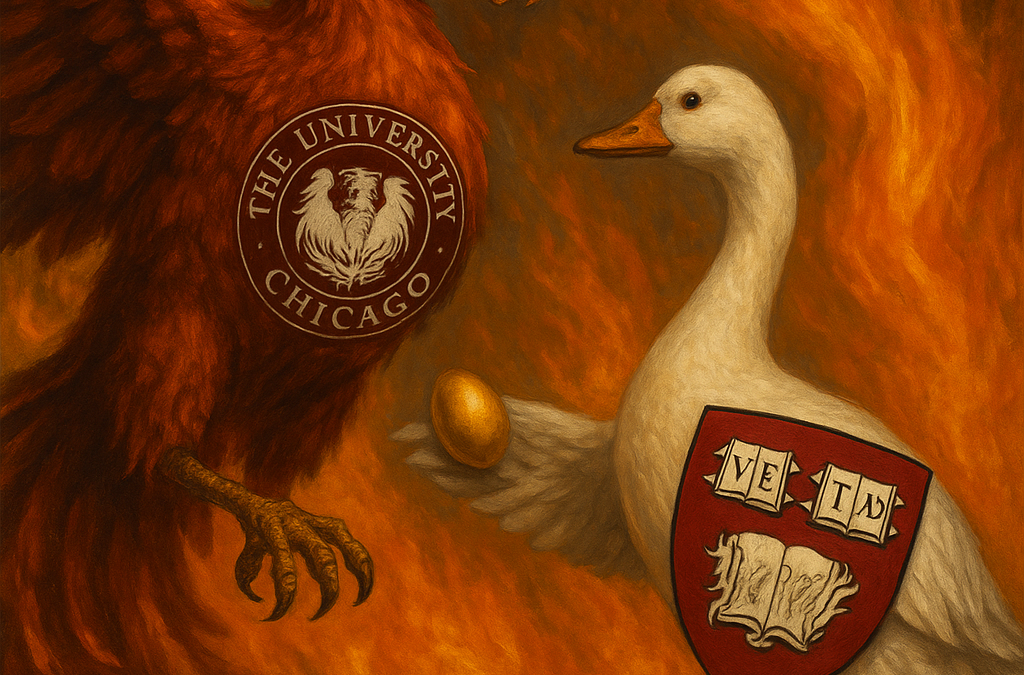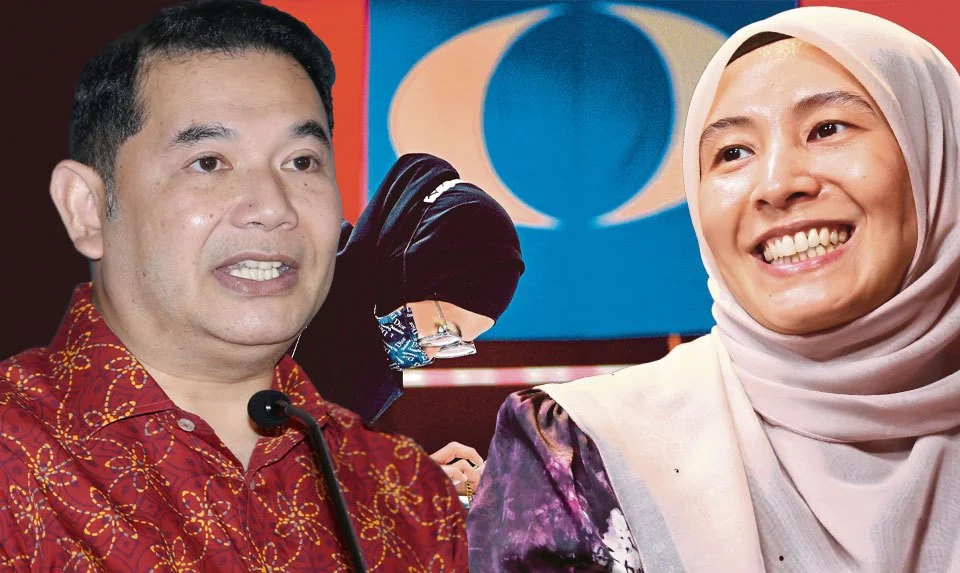When I saw the headline, my eyes widened.
“How Kamala Harris burned through 1.5 billion dollars in 15 weeks.”
I stared at my phone once, and I stared at it twice, as my disbelief grew.
Was this not NYT? Did they not just endorse Kamala with the force of an angry democratic tiger no less than two months ago? Was this real?
As I thought through the implications, I saw my disbelief echoed in the comments that came along with it, the shock that filled my mind – the discomfiting revelation. Our world had transformed.
The New York Times is a paper that is unique amongst many others. First among equals in the world of newspaper journalism, its eminence has proven itself through the years and across eras as it shapes the way that the world thinks on a range of different issues, alongside its counterparts such as The Wall Street Journal, the Associated Press, and The Washington Post in the U.S., and on an international front, the BBC and Reuters in the United Kingdom, and Al Jazeera in the Middle East.
There is an interesting adage that goes as follows:
“When America sneezes, the rest of the world catches a cold”.
To that I say, whatever the New York Times publishes, the world garnishes as the realm of acceptable discourse unfolds, an entire communicating planet paying homage to the one of the dominant media voices in the United States of America.
…Which leads to my question.
What does it mean when NYT tells us about “How Kamala Harris Burnt Through $15 billion in 15 weeks”?
The article I would like to write is not an article about campaign spending, and neither is it a piece to point out flaws or discrepancies in Kamala’s campaign:
The first would be far too boring, and the second would land me into polemics in a world where multiple other people can discuss the topic from end to end, many of whom are deeply more qualified than I am.
Rather, what I hope to accomplish by the end of this is to give you a sense of the shifting dynamics of power in the media landscape and the United States of America, and how these influence the world.
But in order to do that, I must raise what may be to some an unfamiliar concept:
The Overton Window.
The Overton Window refers to the range of acceptable ideas and policies in public discourse, and it is simple to imagine how this works.
Think about a yardstick marked on two extremes representing completely opposite policy actions along a spectrum.
On one end of such a yardstick designated for educational policy, for example, we could imagine that people are allowed free school choice and can choose or start any school they want, and on the other end, that the government has a complete monopoly on school choice and school creation, schools are assigned to every student, and no such freedom exists.
In all likelihood, people wouldn’t want to set up any kind of school they want with any kind of curriculum, even extremist ideas from any religion, or perhaps with no restrictions whatsoever, while at the same time, people may not want to have the government completely decide what is acceptable or not for them to pursue in terms of their schooling, or an education system reminiscent of what might appear in a totalitarian dictatorship. Move away from government totalitarianism towards freedom, and away from the freedom of the predatory capitalist or the ideologue towards the direction of regulation, and you move closer to the Overton window: That which is acceptable, and that which is possible by the standards of the ‘reasonable’ person.
The beautiful thing about the Window is that it never remains static; beyond our personal imaginings of right and wrong, it is deeply influenced by the cultural, political, and media forces that shape our lives today – and it is here that the NYT enters.
Just a few weeks ago, the New York Times used its mammoth role in shaping the Overton window and its reputation for in-depth, comprehensive, and world-shaking news coverage to endorse Kamala Harris as the only patriotic choice for President.
The New York Times, its position then made clear as an avid avid advocate for the Democratic Party, illustrates that the news media establishment and by extension most of ‘respectable’ America could, and perhaps should, per the NYT’s view, consider her as a leader – a narrative that many people on the left cleaved to.
The endorsement influenced not just individuals, but institutions. Academia, think tanks, and policy organizations took cues from NYT’s framing, shaping broader discourse in respectable circles. What was patriotic became an issue up for debate, tying the choice of Kamala to national identity and a moral responsibility, galvanizing the left under a rallying cry in a clear attempt to shape the discourse of what was acceptable, driving it towards a narrative where it was the Kamala Way or the Highway.
Yet, in suggesting that Kamala burned through $1.5 billion in 15 weeks, it has taken a 180.
The word choice was “burning” in more ways than one, raising connotations of wastage and possible ethical subterfuge, and the headline’s direct association suggested that it was Kamala who was solely responsible.
The damning language did not go unnoticed by NYT’s readers, many of whom considered Kamala a hero – and within just a few hours of the post, the comments flooded in.
“This headline is as unserious as the incoming administration”, “crazy headline”, “this is a nonsense headline really”, “What’s wrong with NYT right now? This is ridiculous” and lastly, “What is wrong with the media right now? This is what we should be focused on? Stop, please.”
It was truly fascinating to watch, but what I could understand was this – that readers were dissatisfied with the negative portrayal of Kamala Harris from one of the staunchest allies of the Democratic Party, a mammoth media organisation dedicated towards the liberal-progressive cause of a republic of justice, equity, and fairness: A betrayal of the highest order orchestrated by democracy-hating MAGA fanatics and finally facilitated by a Brutus that none of them could have expected…
What was also fascinating to watch though, was seeing how the same commenters had responded when NYT had spoken about Trump in acts of disparagement, calling him a threat to democracy that was too old to speak a coherent word as they mocked his age, his coherence, and his ability to speak, while at the same time endorsing Kamala Harris in the course of editorials that showed a clear bias towards one candidate over another in the presidential elections even as the elite world rejoiced gleefully, publishing opinion poll after opinion poll about how Trump would definitely lose as they funneled in hundreds of millions of dollars into the Harris campaign.
Yet there it was, a single headline that showcased the separation between a bygone world and a new future, one where an NYT was dramatically biased against Trump and towards the Democratic Party is actively involved in the project of shifting the Overton window both to the right and making acceptable what was once an unheard-of task: Taking democratic leaders to account in a world of liberal media bias.
NYT’s framing will influence think tanks, policy makers, and the country alike, even as all of those things and their separate moving parts influence the space of the possible.
Following its lead, newspapers from the small to the large, both nationally in the US as well as internationally, will begin a project of investigating the Democratic Party, in turn catalyzing a coterie of stakeholders into motion by dint of inertia or active resistance as the whole pendulum swings a little to the right in this strange marionette dance discourse of acceptable political conversation, putting into motion a grand narrative shift that encapsulates our world.
A reckoning begins as the motion accelerates, and before long, it is acceptable for people to unmask the Democratic Party, to judge it, to identify its flaws as they identify the Republican party’s merits, and find themselves able to more deeply reckon with the question and validity of wokeness, the debilitations or strengths of a woke pharmaceutical industrial complex ala DEI, progressives, and immigration in a new world where more narratives will be subject to scrutiny than ever before from both sides of the political spectrum within a multidimensional and ever-changing world.
As America wrestles with what it means to be American and the world takes into account the dragon that is the United States, we watch it take to account an institution that many say has been protected by the oligarch media moguls of an elitist empire that makes the manufacture of consent its main province – We observe a nation that is the most powerful that the world has ever known come to see its different shades through sound bites, and watch the bipolarity of discourses in a nation where one half of the population deeply distrusts the other half, and where politically biased media super-agencies have not been helping.
One could contend that the very result that we see here reflects a bone thrown to demonstrate neutrality, a reluctance to step on the toes of the Trump administration manifested in criticizing the Democrats, and a chilling of the freedom of speech that constitutes the bedrock of American democracy – Now that Farmer Jones is gone, the rest of the animals must now pacify the pigs and the sheep must sacrifice their own, that they may pacify the wolves whom they have elected.
But I am not really a cynic – yet in the same way that I am not a cynic, I am also not an overt enthusiast for a bright and bountiful future.
What I can certainly say, however, is that NYT’s characterization of Kamala Harris represents a positive step forward in reckoning with the fact that Donald Trump will be the 47th President of the United States, and that rather than attacking him alone, perhaps it should play true to its status as a journalistic entity and begin attacking the other side too, not simply for the pure joy of attacking, disparaging, or bringing down, but rather because journalism done effectively, just like exercise done effectively, damages, and stretches our world as exercise stretches the body, damaging it just in the right ways so that it, as we hope that democracy as a whole, will grow stronger and more robust.
In the coming days, I believe that the Kamala headline will be only the first of a series of steps rightward and into a new pathway where the Democratic Party will be increasingly under scrutiny, where discussions will take place showcasing that scrutiny and the left will face assaults not only from the right and the enemy as they perceive it, but from a very large number more people on the fence as well.
Who knows what the result of this will be, but as an item of fanciful reflection, I hope that what happens in America will serve as an item of leadership for the rest of the world, where the sharp boundaries between left and right can be increasingly challenged not just by the independents or the kooky skeptics called off as outer fringe theorists rejected by both ends of the establishment, but instead by the incumbents and that in this new paradigm, the profit of engagement will come not from screaming into echo chambers as our divisions grow deeper, but instead by appealing towards moderation and the test of ideas in a space characterized by a more balanced playing field undergirded by the constitution and the underpinnings of the First Amendment in finest form.
As a foreign observer, I repose an awareness that the Trump administration will be an America-first government. But still, I can see why it is that this is important for the American people: You must save yourself first in order to save others, and unless you are safe, you have no business protecting anyone.
As the world has, and no doubt will continue to, I will continue to bet on America, hoping for something better.
Will ‘better’ emerge unambiguously? Likely not, I think – Most likely, whatever will emerge will emerge in the midst of contentious debates, bickering, and the pass-throughs of geopolitical tensions, in the clash of belief systems not only in America, but also globally. What’s certainly clear to me, however, is this: America and the world have much need for self-awareness and scrutiny, and whether we like it or not, the traditional media will continue to shape our views of ourselves and the ideas we deem acceptable.
In a world divided by the stroke of social media posts and sound bites released by these mammoth news entities, however, I will say: It is encouraging to see NYT move actively against its own historical bias, and I hope that more media agencies will act in this way in the days to come.


